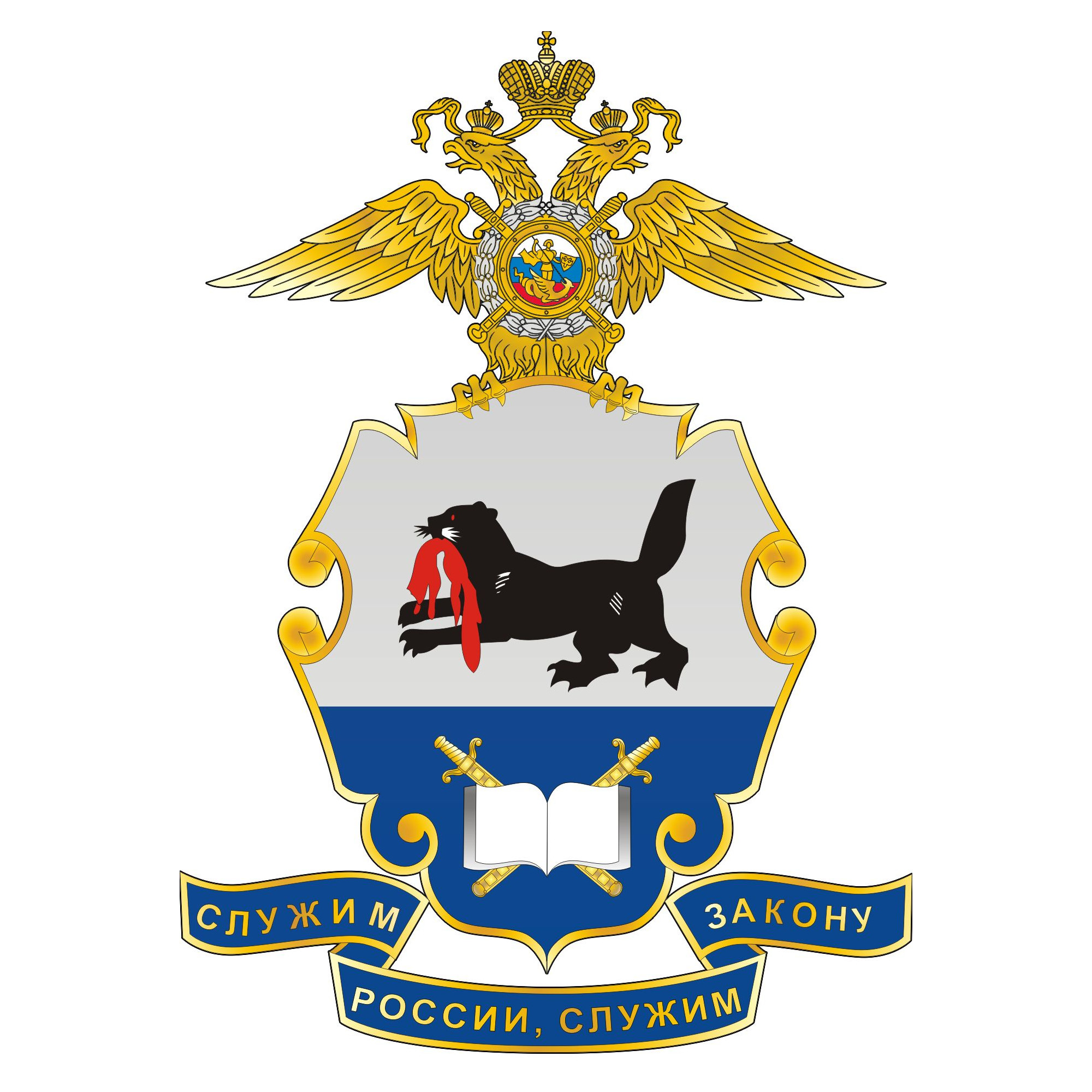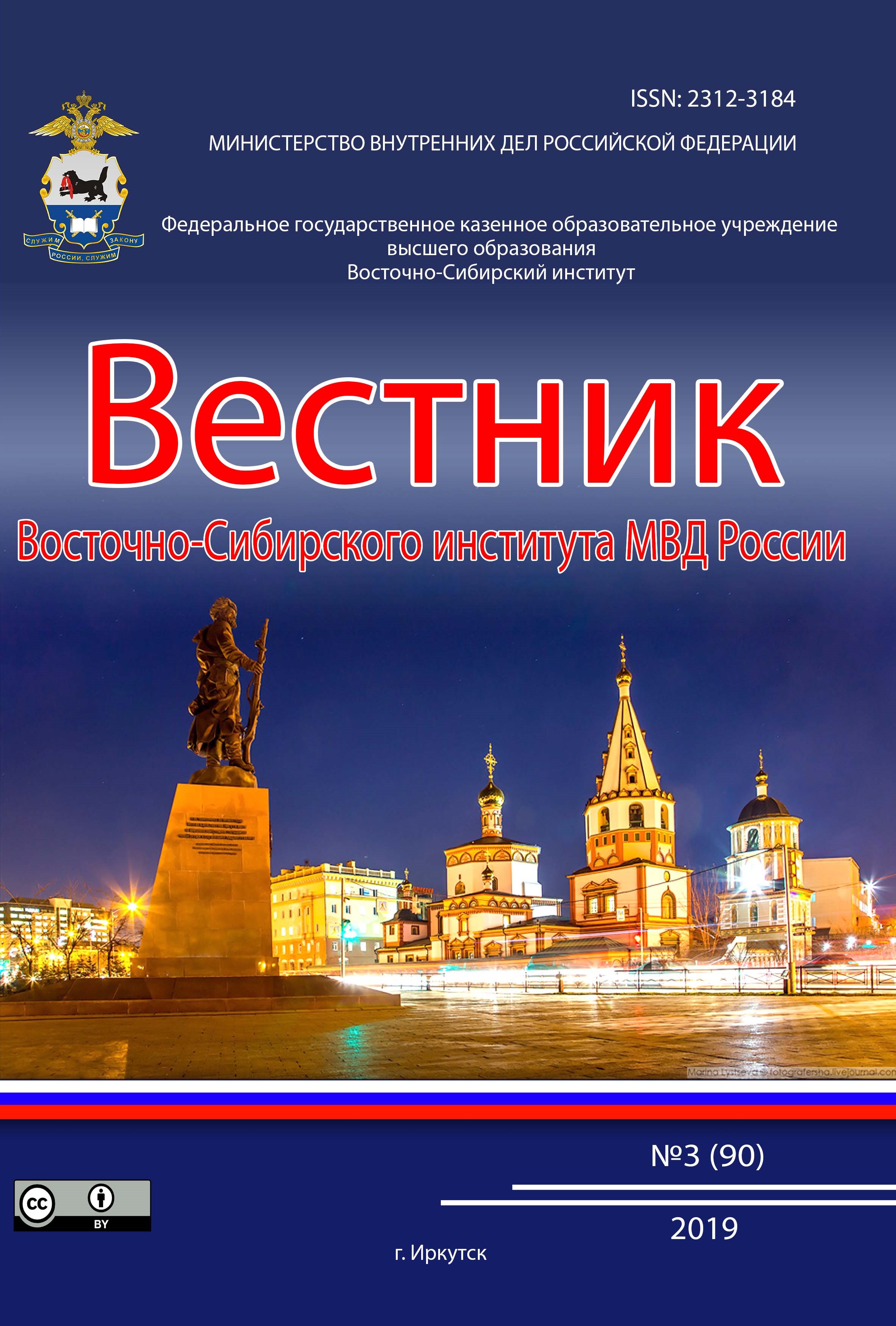Irkutsk, Russian Federation
Russian Federation
Introduction. To date, there is a need for both science and practice to carry out a comprehensive large-scale work to create a fundamentally new approach to understanding the institution of punishment as a system of interdependent and interacting elements, which are types of punishment, as well as the appropriateness of their application in each specific case, raising the question of the effectiveness of the system. Materials and Methods. The theoretical basis of the study was scientific works on the problem of the effectiveness of criminal-legal sanctions in the modern criminal policy of the Russian Federation. Formal-legal, descriptive-analytical, system-structural, statistical methods of analysis and explanation of social and legal phenomena were used. The Result of the Study. As a result of the research, the key indicators of the effectiveness of criminal law sanctions in the modern criminal policy of the Russian Federation have been analysed and described. Findings and Conclusions. The authors of this article substantiate the need for a new approach to understanding the institution of punishment as a system of interdependent and interacting elements that determine, in particular, the effectiveness of the system within the framework of the criminal policy of the state. The definition of the concept of the effectiveness of the punishment system is formulated, the most urgent issues of the effectiveness of the punishment system, which require its rapid solution, are identified, and ways to improve the effectiveness of the punishment system are proposed.
criminal law sanctions, effectiveness of criminal law sanctions, punishment system, effectiveness of punishment system, criminal policy, types of punishments, basic punishments, additional punishments.
1. Esakov G.A., Dolotov R.O., Filatova M.A., Redchits M.A., Stepanov P.P., Tsai K.A. Ugolovnaya politika: dorozhnaya karta (2017-2025 gg.) [Criminal Policy: Roadmap (2017-2025)]. Moscow, 2017, 76 p.
2. Kononykhin S.Y. Ugolovno-pravovoe znachenie sistemy nakazanij v dejstvuyushchem ugolovnom prave rossijskoj federacii [Criminal-legal significance of the system of punishments in the current criminal law of the Russian Federation]. Vestnik tomskogo gosudarstvennogo universiteta – Vestnik TSU. 2010, Issue 3 (83), pp. 387-390.
3. Maksimov S.V. Cel' v ugolovnom prave: metodologicheskie aspekty [Purpose in criminal law: methodological aspects]. Ulyanovsk, 2002, p. 148.
4. Morozova K.N. Realizaciya principa spravedlivosti nakazaniya v sudebnom prigovore [Realisation of the principle of fairness of punishment in a judicial sentence]. Sibirskie ugolovno-processual'nye i kriminalisticheskie chteniya – Siberian criminal-procedural and criminalistic readings. 2017, pp. 113-120.
5. Kelina S.G. Principy sovetskogo ugolovnogo prava [Principles of Soviet criminal law]. Moscow, 1988, p. 176.
6. Kraynova N.A. Ispravlenie osuzhdennogo: cel' ili funkciya ugolovnogo nakazaniya (k voprosu o sushchnosti i terminologii) [Correction of a convicted person: the purpose or function of criminal punishment (to the question of the essence and terminology)]. Pravosudie i pravoohranitel'naya deyatel'nost' v evrazijskom prostranstve – Justice and law enforcement in the Eurasian space. 2019, no. 2 (39), pp. 60-64.
7. Brovkina A.A., Korneev S.A. Resocializaciya osuzhdennyh kak cel' ugolovnogo nakazaniya [Resocialisation of convicts as a goal of criminal punishment]. Vestnik ural'skogo yuridicheskogo instituta MVD Rossii – Vestnik of the Ural Law Institute of the Ministry of Internal Affairs of Russia. 2020, no.1, pp. 97-102.
8. Dobryakov D.A. Sistema i vidy nakazanij po ugolovnomu zakonodatel'stvu Rossijskoj Federacii i Respubliki Koreya (sravnitel'no-pravovoj analiz) [System and types of punishments under the criminal legislation of the Russian Federation and the Republic of Korea (comparative legal analysis). - autoref. diss. ... cand. Jurisprudence]. Moscow, 2018, pp. 26.
9. Podroikina I.A. O perspektive aresta kak ugolovnogo nakazaniya [On the perspective of arrest as a criminal punishment]. Akademicheskij vestnik Rostovskogo filiala Rossijskoj tamozhennoj akademii – Academic Vestnik of the Rostov Branch of the Russian Customs Academy. 2015, no. 3 (20), pp. 65-69.
10. Yakimenko V.I. Arest kak vid ugolovnogo nakazaniya dlya grazhdanskih lic i voennosluzhashchih: problemy i perspektivy razvitiya [Arrest as a type of criminal punishment for civilians and military personnel: problems and prospects of development]. Mezhdunarodnyj zhurnal gumanitarnyh i estestvennyh nauk – International Journal of Humanities and Natural Sciences. 2019, pp. 176-179.
11. Podroikina, I.A. Teoreticheskie osnovy postroeniya sistemy nakazanij v ugolovnom zakonodatel'stve Rossii [Theoretical foundations of the construction of the system of punishments in the criminal legislation of Russia: diss. ... doctor of juridical sciences]. Omsk, 2017, 498 p.
12. Pashin V.M. Special'nye pravila naznacheniya nakazaniya i mer ugolovno-pravovogo haraktera: monografiya [Special rules for the appointment of punishment and measures of criminal-legal character: a monograph]. Moscow, 2012, 520 p.
13. Zubkova V.I. Ugolovnoe nakazanie i ego social'naya rol': teoriya i sudebnaya praktika [Criminal punishment and its social role: theory and judicial practice]. Moscow, 2002, 304 p.
14. Lopashenko N.A. Vvedenie v ugolovnoe pravo [Introduction to criminal law]. Moscow, 2009, 213 p.
15. Gaukhman L D. Nuzhen novyj UK RF [Need a new Criminal Code of the RF]. Zakonnost' – Legality. 1996, no. 7, pp. 22-28.
16. Gavrilov B.Y. Sovremennaya ugolovnaya politika Rossii: cifry i fakty [Modern Criminal Policy of Russia: Figures and Facts]. Moscow, 2008, 208 p.
17. Mikhal O.A. O nauchnom obosnovanii granic kategorij prestuplenij [About scientific substantiation of the boundaries of the categories of offences]. Mezhdunarodnye yuridicheskie chteniya – International Legal Readings. Omsk, 2008, Issue 4, pp. 106-109.
18. Rogova E.V. Uchenie o differenciacii ugolovnoj otvetstvennosti: monografiya [Doctrine of differentiation of criminal responsibility: a monograph]. Moscow, 2014, 344 p.
19. Gustova E.V. Postroenie sankcij v ugolovnom prave Rossijskoj Federacii: teoreticheskij aspekt: dis…. kand. yurid. nauk [Constructing sanctions in the criminal law of the Russian Federation: theoretical aspect: dis.... cand. jurid. nauk]. Voronezh, 2015, 204 p.
20. Gavrilov B.Y. [Myths and realities of law enforcement in sentencing for corruption offences]. Effektivnost' ugolovno-pravovogo, kriminologicheskogo i ugolovno-ispolnitel'nogo protivodejstviya prestupnosti: materialy XII Rossijskogo kongressa ugolovnogo prava [Efficiency of criminal-legal, criminological and criminal-executive counteraction to crime: materials of the XII Russian Congress of Criminal Law]. Moscow, 2020, pp. 34-38.
21. Rogova E.V., Ishigeev V.S., Parfinenko I.P. Vliyanie ugolovno-pravovyh sankcij na individualizaciyu nakazaniya [Influence of criminal law sanctions on the individualisation of punishment]. Vserossijskij kriminologicheskij zhurnal – All-Russian Journal of Criminology. 2016, no. 4, pp. 710-720.











